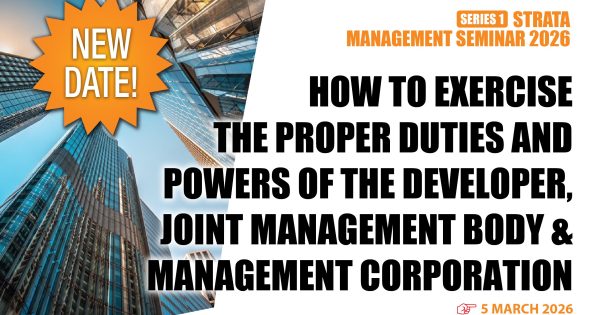
CASE UPDATE: PAU BOON LEONG v JOINT MANAGEMENT BODY OF DATARAN PRESTIJ & ANOR [unreported]
FACTS:
A parcel owner brought an action via originating summons [“OS”] against the joint management body [“JMB”] and property management company [“PMC”], to claim for, inter alia: –
- A declaration that the PMC is not a licensed property manager and/or allowed under the Strata Management Act 2013 and the PMC is not allowed to be appointed and/or be assigned maintenance and/or management duties of the building;
- A declaration that any agreement, written or otherwise, entered into between the PMC and the JMB, is null and void;
- Restitution under section 66 of the Contracts Act 1950;
- Injunction against the PMC and/or its workers or agents to be removed from entering into, and/or acting as property manager for all affairs concerning the maintenance and management of the property in Dataran Prestij; and
- An order that JMB and/or its committee members appoint property manager based on the provisions of law.
High Court Decision:
The court dismissed the OS with costs and found in favour of the submissions of PMC and JMB, among others: –
- The parcel owner has no locus standi to bring the action;
- The parcel owner is not privy to the agreement entered into between PMC and JMB;
- At any rate, PMC has paid the requisite bond pursuant to the strata regime; and
- There are no losses suffered by the parcel owner.
TAKEAWAY:
A proprietor should not be allowed to interfere with the contractual relationship between a JMB and a third-party service provider. At any rate, in a case where it involves dealings with an unlicensed property management company, JMB must ensure the lodgment of the requisite bond as stipulated under the strata regime.


